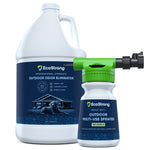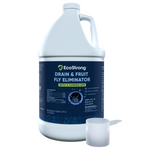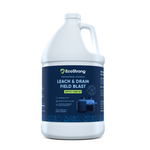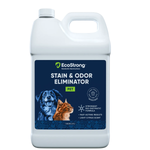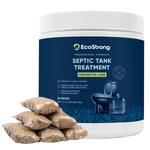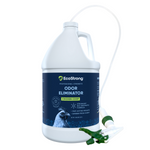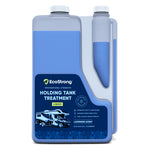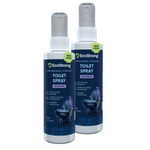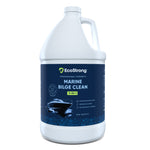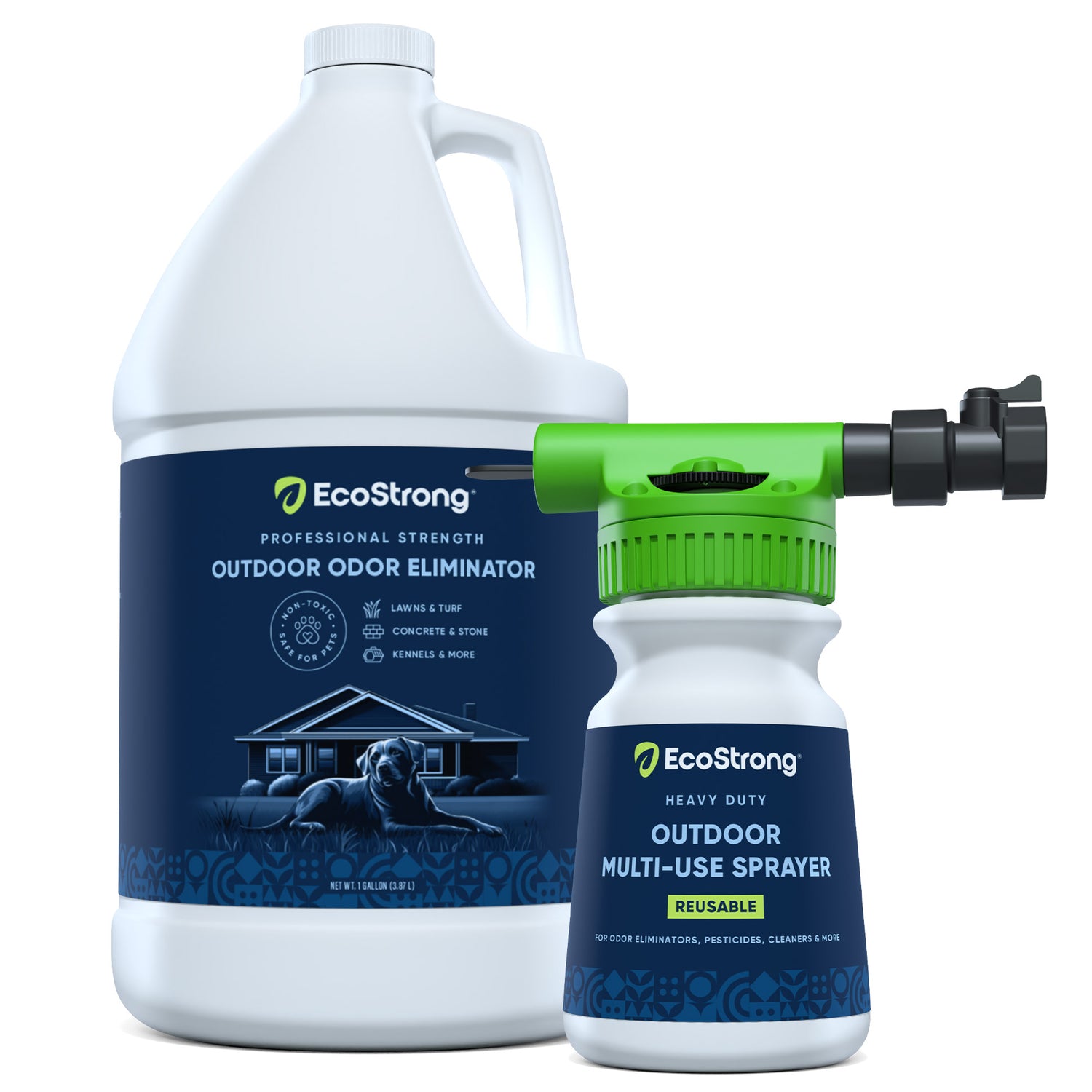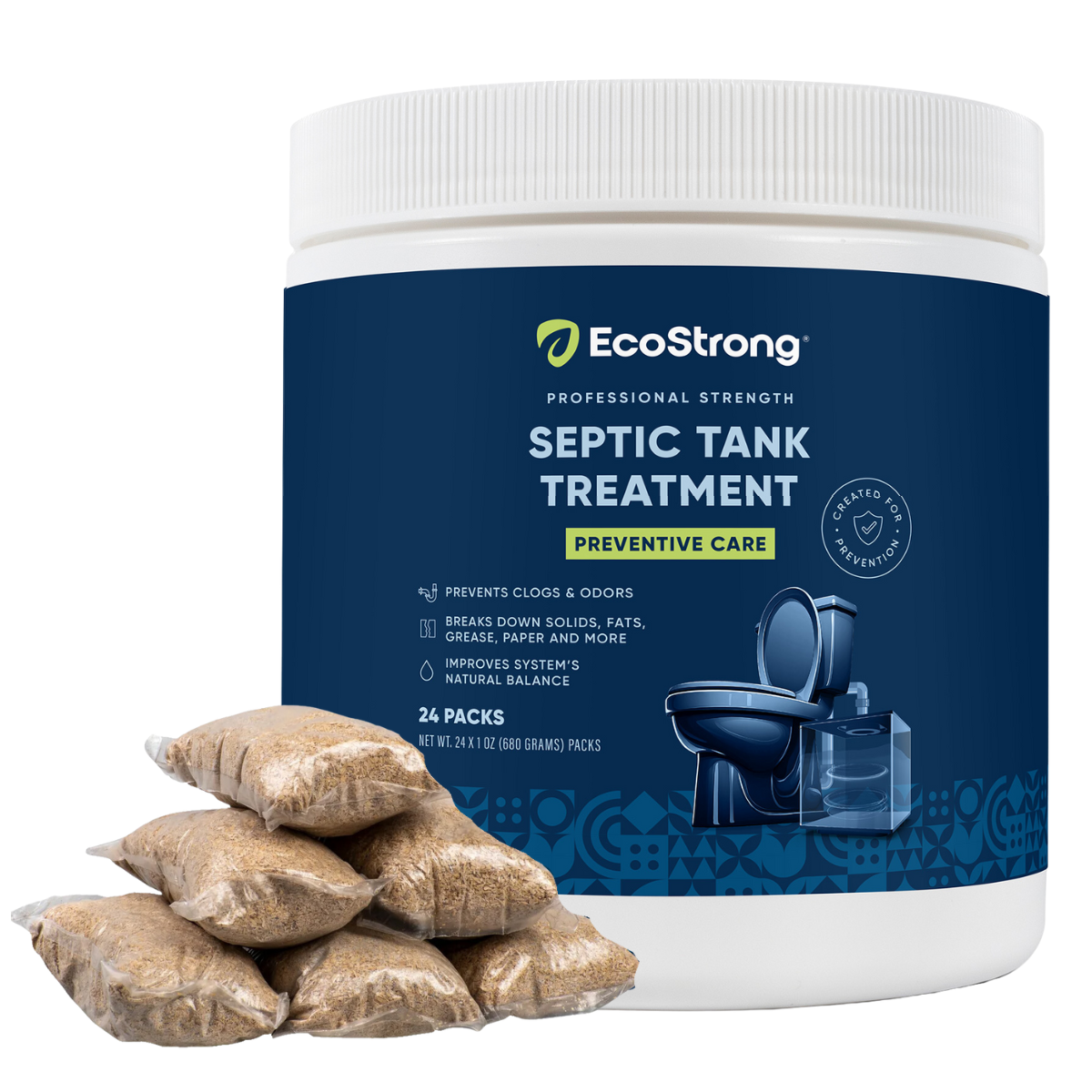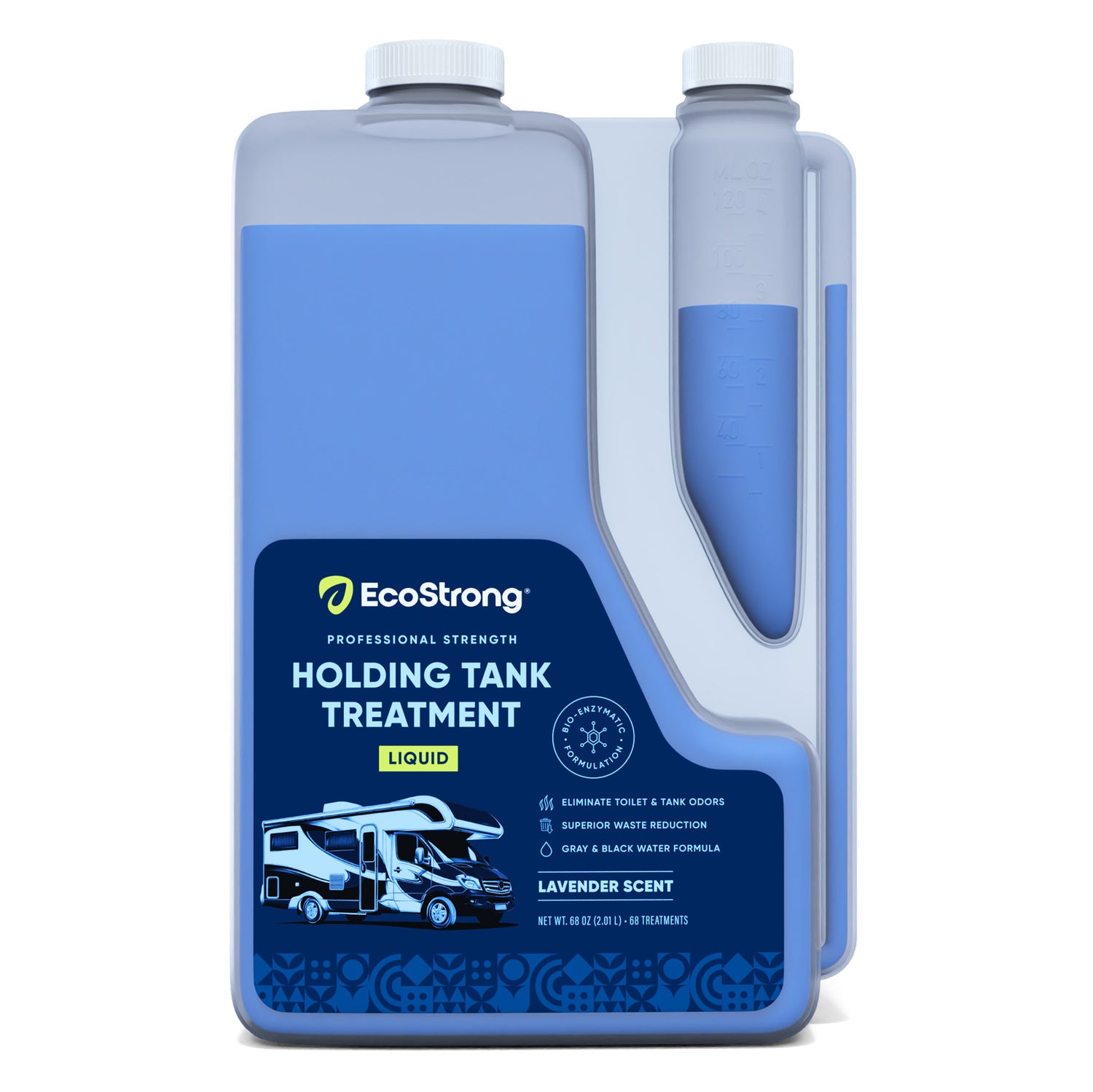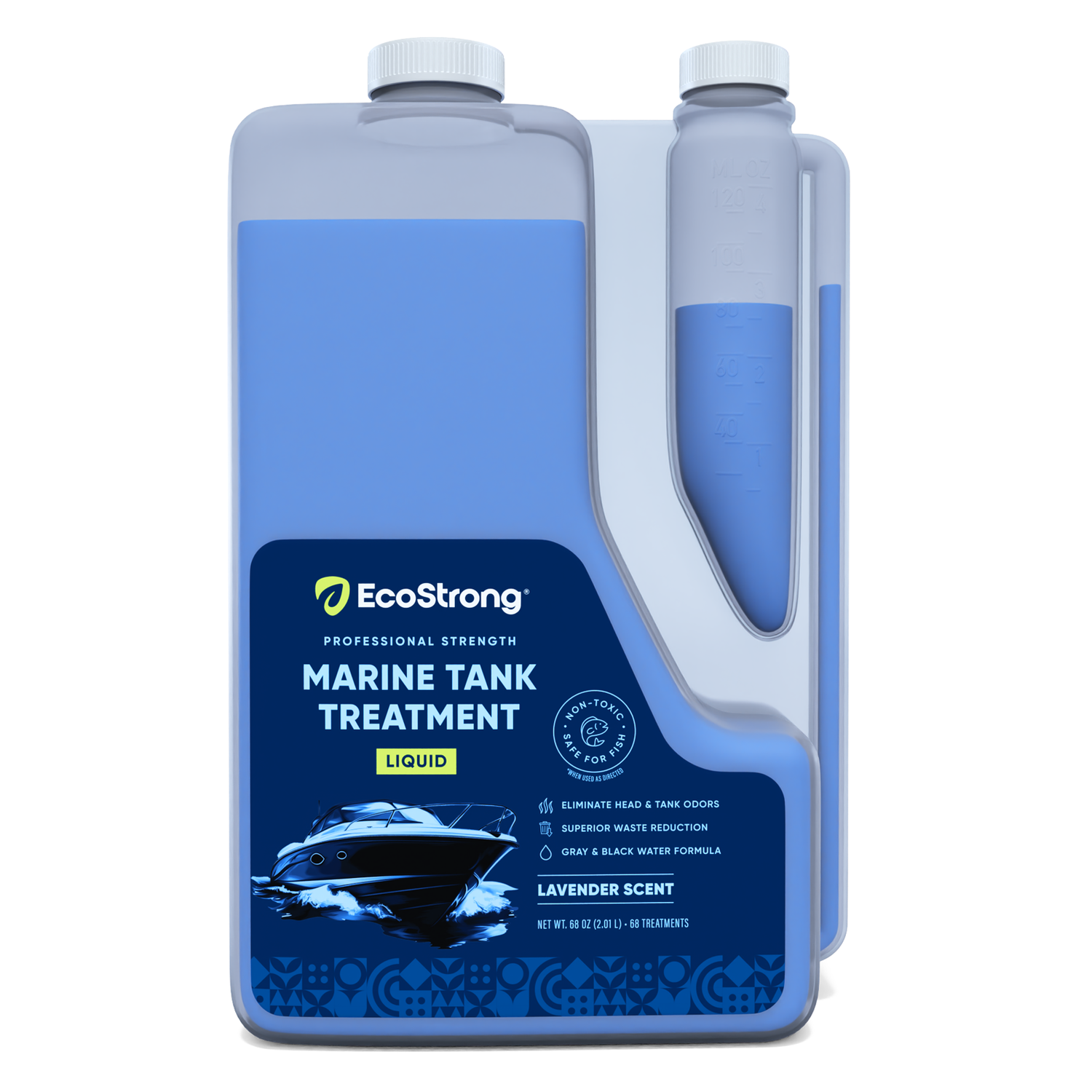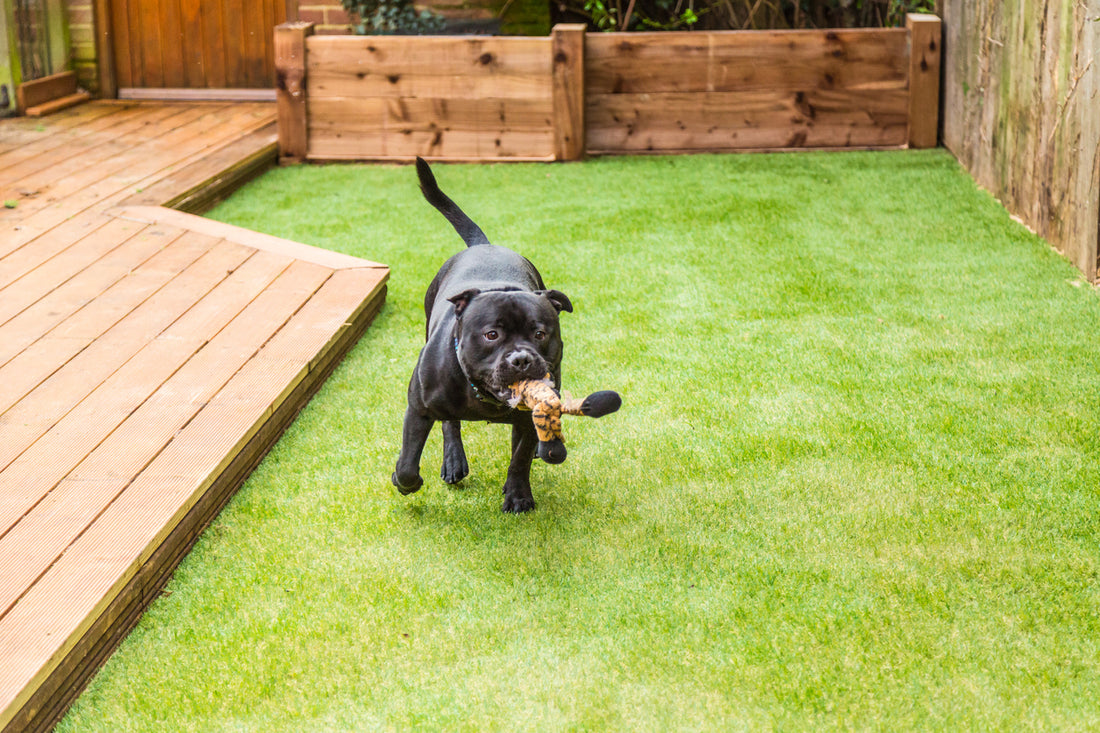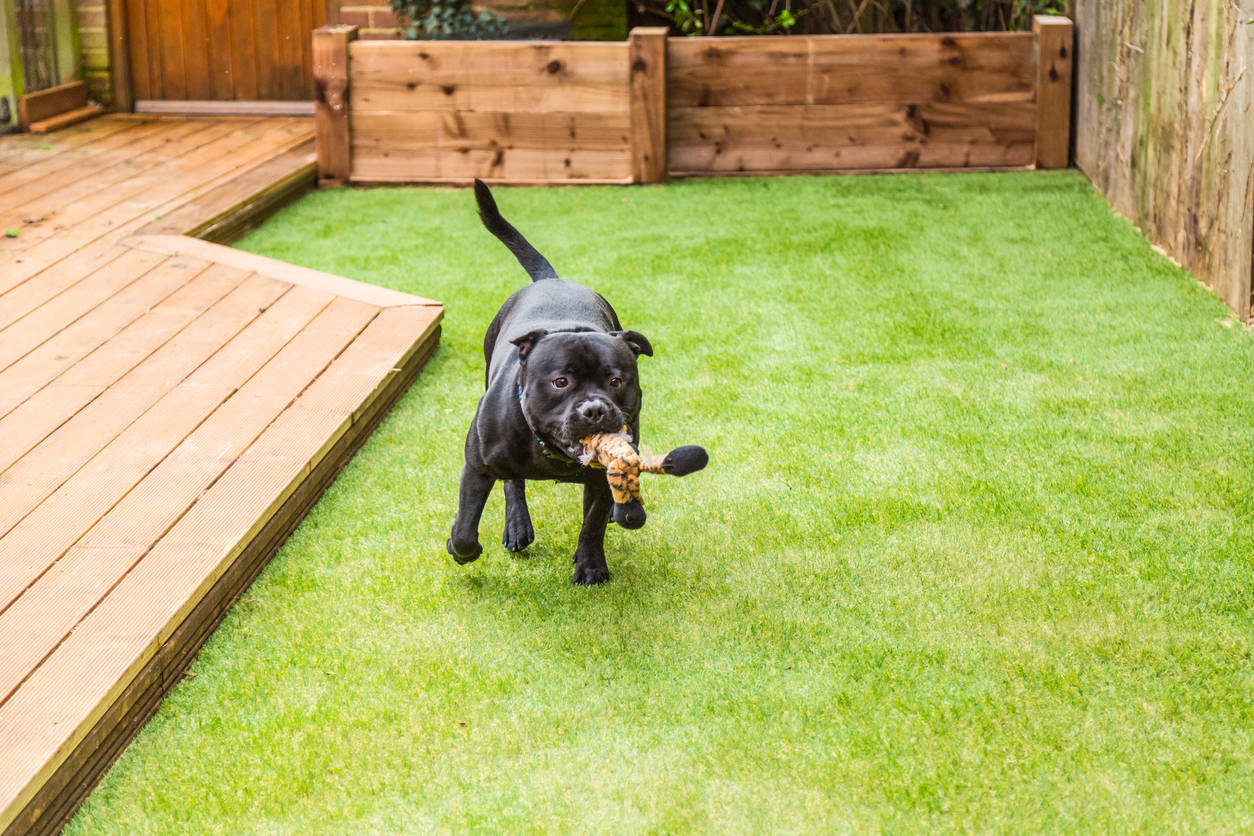
Artificial turf is great for dog owners. Dogs can't dig it up, they won't get muddy and their pee cant kill or yellow the synthetic grass. But their urine does pose one major issue for artificial grass owners, and that is the smell.
Turf manufacturers solution to this problem is to install antimicrobial turf. Antimicrobial agents are added during the manufacturing process that are designed to kill the odor causing bacteria in pet urine and feces.
While it may sound like a great idea, in this article will tell you why you may want to reconsider your decision to install antimicrobial turf and stick to a traditional artificial turf instead.
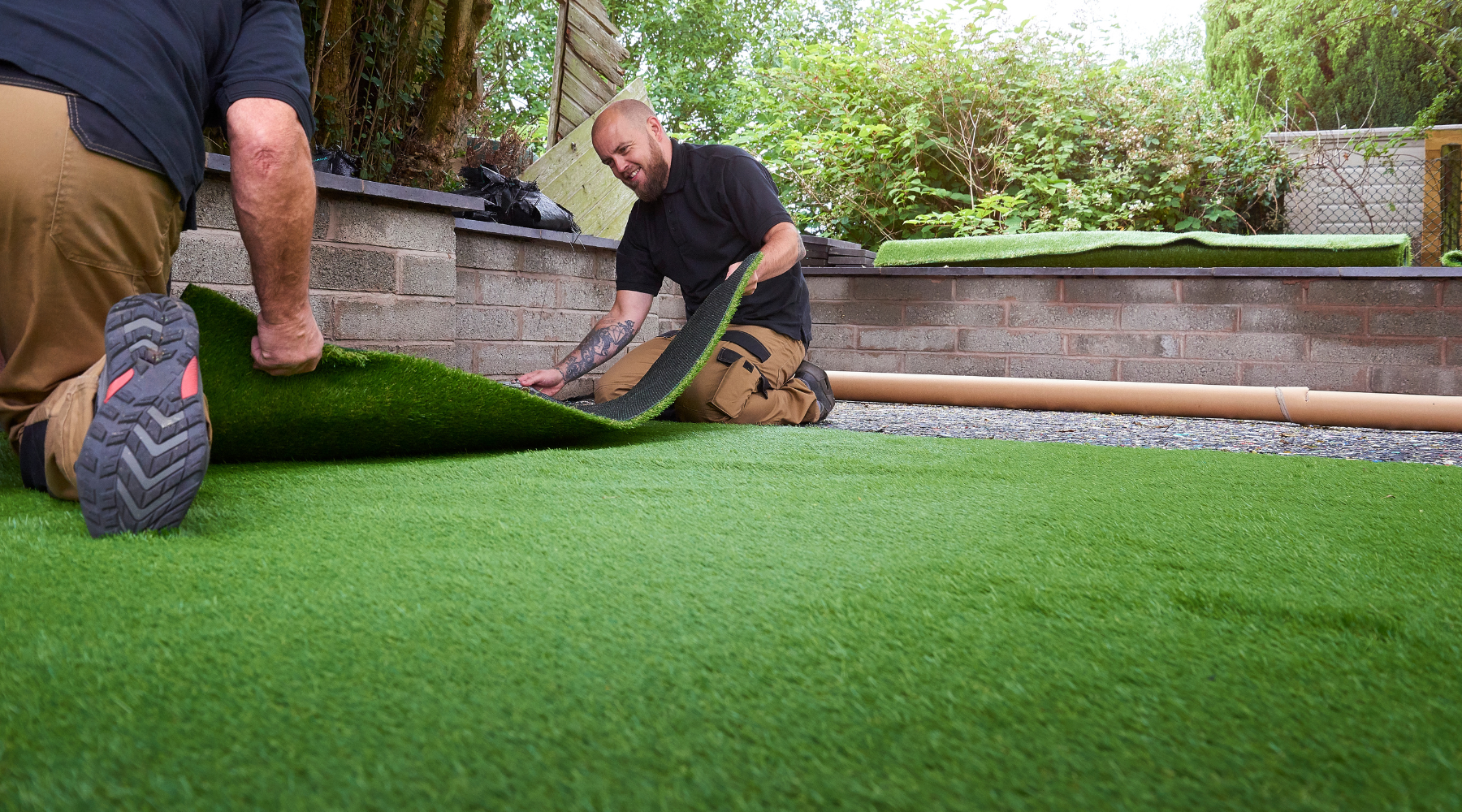
Why Does Dog Pee Smell So Bad On Artificial Turf?
Dog urine doesn't penetrate synthetic turf the same way it does natural grass. Smelly organic materials like urine cannot seep into the soil in your yard. Instead, it clings to the blades of the fake grass and gets trapped in the rubber matting and weed barrier.
Over time, the urine builds up and that means your lawn can start to smell...bad (especially on a hot day). This common concern for pet owners has led to the technology behind antimicrobial turf.
What is Antimicrobial Turf?
Antimicrobial turf is a type of synthetic grass that is treated with an antimicrobial agent designed to kill, you guessed it, microbes. The antimicrobial agent is typically integrated into the fibers and blades of the turf during the manufacturing process. The concept is that it kills the odor causing bacteria in pets pee and poop.
The Problem With Antimicrobial Artificial Grass
Antimicrobial turf sounds great and it is for a lot of people. However, if the antimicrobial agents are not strong enough to kill the microorganisms responsible for the pets urine odor, then you have a real problem.
This is because turf products for pet odor elimination are bio enzymatic. That means they are made with live microbes and enzymes. These helpful microorganisms will eat away at the compounds in the urine that produce the smells. The antimicrobial turf kills the helpful microbes preventing these products from working. You are now stuck smelly turf and no reasonable alternatives.
If the antimicrobial turf is not strong enough to kill the odor causing microbes, it leaves the only real solution to get rid of the smell useless.
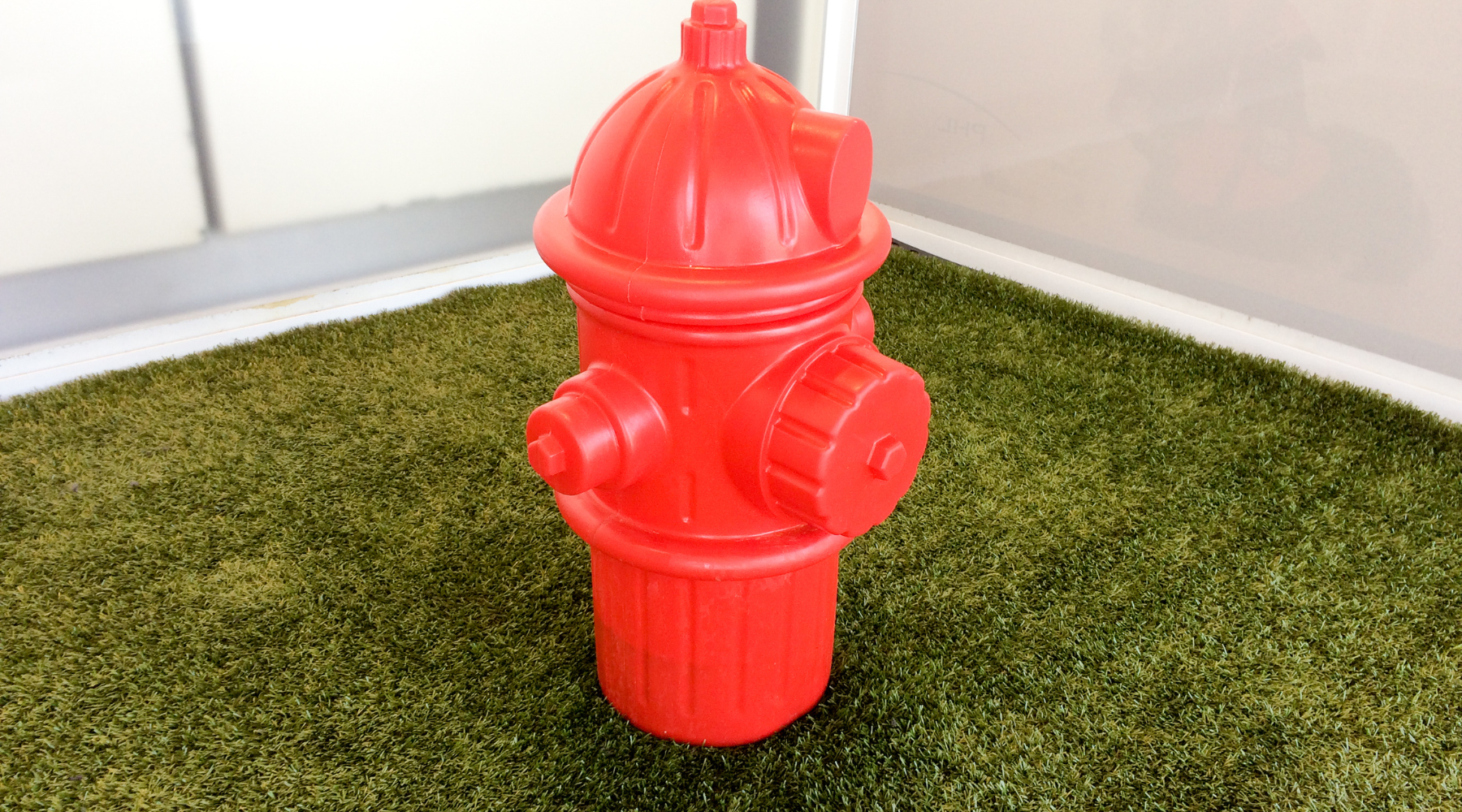
What if You Already Have Antimicrobial Turf and it Smells
Here are a few options to consider if your antimicrobial turf is starting to smell:
-
Contact the contractor who installed it: Reach out to the company who laid the turf to see if they offer any sort of guarantees. Explain the problem and see what solutions they are willing to offer you.
-
Try a home remedy: There are tons of home remedies for getting rid of dog urine odors outside. For example, baking soda and vinegar or boiling water with soap. They do not work as well or as consistently as bio enzymatic odor eliminators, but they are worth a try.
-
Consider getting your dog spayed or neutered if they are not already: This may sound strange, but the urine odor from dogs that have not been spayed or fixed is stronger than those who have been. It will not fix the smell, but it may make it more bearable in the long run.
-
Retrain your pet to go to the bathroom in a different area: If possible, try to teach your dog to do its business somewhere other than the artificial grass. This way, you can use a bio enzymatic odor eliminator to get rid of the smell if you need to.
-
Replace the antimicrobial turf with a traditional turf: This is a last resort, but if you can't bare the ever present smell of dog pee, then it may be time to consider changing to traditional synthetic grass or natural grass.
Conclusion and Our Recommendation Those Considering Synthetic Grass
Antimicrobial artificial grass is designed to kill the bacteria in urine and feces responsible for foul odors. However, we frequently hear from people with antimicrobial turf that they are struggling with the smell of pee from their dogs.
Antimicrobial turf prevents bio enzymatic odor eliminators from working. If the antimicrobial turf is not effectively getting rid of the smell on its own, it leaves owners with no real options because bio enzymatic odor eliminators will not work. For this reason, we recommend that you install traditional synthetic turf in your yard intended and maintain it properly.


